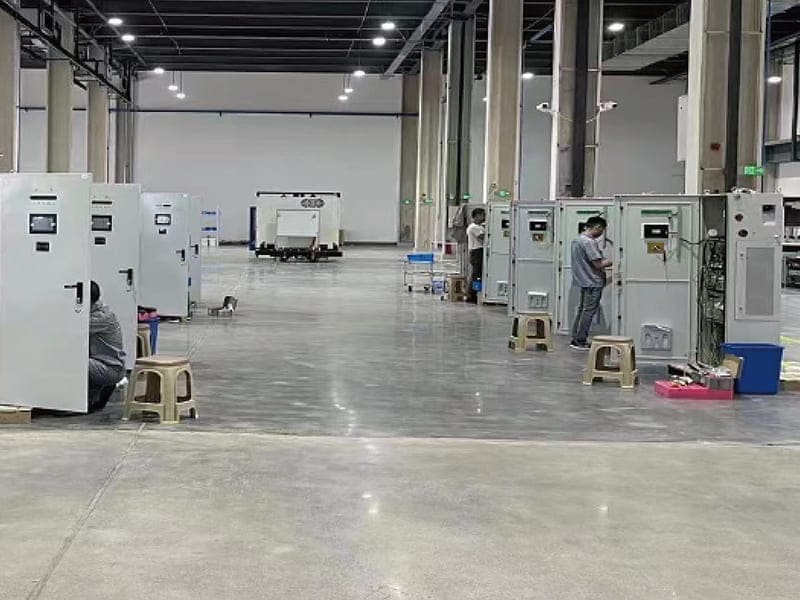EV Charger Cost has become a central topic in the electric vehicle industry. Many consumers want clarity. They ask how much an EV charger costs and when it pays off. This article explains key factors, financial details, and long-term benefits.
Understanding EV Charger Cost
The EV Charger Cost depends on equipment, installation, and location. A simple charger may cost little. However, advanced chargers with higher power levels cost significantly more. Therefore, consumers must research before purchasing.
Types of EV Chargers and Cost
There are three main charger types: Level 1, Level 2, and DC Fast. Level 1 chargers are cheaper but slower. Level 2 chargers balance cost and speed. DC Fast chargers are expensive yet deliver rapid charging. Consequently, the EV Charging station Cost varies dramatically.
Installation Costs Explained
Installation adds major expense to the EV Charging station Cost. Basic installation may only require a standard outlet. However, complex projects need electrical upgrades. Therefore, installation costs range from hundreds to thousands. Homeowners should always get professional quotes.
Hidden Costs to Consider
Beyond hardware, hidden expenses affect total Electric Vehicle Charger Cost. Permits, inspection fees, and utility upgrades may apply. Moreover, smart chargers often require Wi-Fi connectivity. Consequently, real costs may exceed initial expectations.
Government Incentives and Rebates
Fortunately, incentives can reduce Electric Vehicle Charger Cost. Governments often provide tax credits and rebates. These programs encourage EV adoption and infrastructure growth. Therefore, buyers should research available local benefits before purchase.
EV Charger Cost vs. Public Charging
Many drivers compare home charging with public stations. Public charging may appear cheaper initially. However, costs add up over time. Therefore, investing in a personal charger often brings long-term savings.
Break-Even Point for Home Chargers
When does EV Charger Cost balance out? The answer depends on usage. Daily charging leads to quicker savings. Occasional drivers may take longer. However, with rising fuel prices, most owners break even within a few years.
Maintenance and Long-Term Costs
Maintenance also influences Electric Vehicle Charger Cost. Fortunately, chargers require minimal upkeep. Occasional software updates and inspections are necessary. Therefore, long-term costs remain manageable for most households.
Commercial EV Charger Cost
Businesses also face significant Electric Vehicle Charger Cost. Commercial chargers are larger and more powerful. Installation is complex and expensive. However, they attract customers, employees, and revenue. Therefore, businesses often see a faster return.
EV Charger Cost Trends in 2025
Industry trends show falling equipment prices. Technology improves efficiency and affordability. Moreover, governments continue supporting clean energy. Consequently, the average EV Charger Cost is expected to decline.
Financing and Leasing Options
Buyers should explore financing to manage Electric Vehicle Charger Cost. Some providers offer monthly leasing models. These reduce upfront expenses while allowing immediate use. Therefore, financing makes EV adoption more accessible.
EV Charging station Cost vs. Fuel Savings
The EV Charging station Cost must be compared with gasoline savings. Charging at home is far cheaper than fueling. Therefore, the cost difference quickly offsets initial investment. Most owners realize noticeable savings within two to three years.
Smart Charging and Energy Management
Smart chargers influence the EV Charger Cost equation. They optimize charging times to reduce electricity bills. Moreover, integration with solar panels lowers costs further. Therefore, smart charging accelerates the break-even point.
Case Studies of Break-Even Periods
Several studies analyze EV Charging station Cost and savings. Results vary by region, usage, and incentives. However, most data confirms break-even between two and five years. Therefore, chargers prove financially beneficial in the long term.
Environmental Benefits as Added Value
EV Charger Cost is not only financial. Environmental benefits also matter. Charging at home reduces emissions and dependence on fossil fuels. Therefore, investment carries both monetary and ecological value.
Key Challenges for Consumers
Despite advantages, challenges exist. High upfront Electric Vehicle Charger Cost deters some buyers. Limited awareness about incentives is another issue. However, education and financing solutions can address these barriers.
Future Outlook on EV Charger Cost
Experts predict further price reductions in the future. Mass adoption will increase production scale. Consequently, equipment and installation should become more affordable. Therefore, EV Charging station Cost will continue trending downward.
Conclusion
The EV Charger Cost remains an important factor for Electric Vehicle owners. However, savings and benefits often outweigh expenses. Break-even arrives sooner than many expect. Therefore, investing in a home or business charger is financially wise and environmentally responsible.

